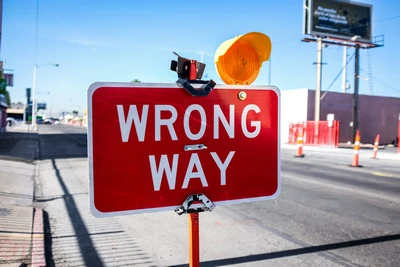Clarity is a rare and precious quality. It’s the ability to cut through the noise — the distractions, the agendas, the endless clamour of competing interests — and see what truly matters. Yet, today, clarity is missing where it is needed most: in leadership.
Leaders, especially politicians, often start with good intentions. Perhaps a desire to serve, to make a difference, to improve society. But the realities of politics quickly erode that clarity. The constant pressure to compromise, to negotiate, to protect alliances, and to secure funding, all muddy the waters.
The first sacrifice is often ethics and morality. What starts as principled conviction too frequently bends to expediency. Over time, this compromises not just policy, but the leader’s very integrity.
Consider former U.S. President Donald Trump, who rose with a populist message promising to "drain the swamp," only to become embroiled in numerous controversies and legal battles that called his ethics into question. Or look at Benjamin Netanyahu in Israel, whose long tenure has been shadowed by corruption charges even as he maintained a strong political base.
Closer to home, in Switzerland and Europe, leaders face similar temptations — subtle but no less real — as they balance national interests with corporate lobbying and economic pressures. Glencore, one of the world’s largest commodity traders domiciled in Switzerland, has been implicated repeatedly in ethical controversies, and political leaders often face the challenge of regulating such companies while fostering economic growth.
Beyond individual examples, this pattern repeats globally. The hunger for power and influence too often replaces the hunger for genuine service. Political leadership sometimes becomes less about serving the people and more about preserving personal or party advantage. This is the “snout in the trough” phenomenon — leaders feeding at the expense of those they are supposed to represent.
And then there is the arrogance — the belief that leaders know better than the people what is good for them. This paternalism erodes trust and fuels cynicism. It creates a gulf between those who govern and those who are governed.
True clarity in leadership means something very different. It requires an unshakeable connection to purpose — a vision rooted in the common good — and a refusal to be distracted by noise or corrupted by power. It means leaders who listen deeply, act honestly, and serve humbly.
If clarity is a light in the darkness, then the absence of clarity is what fuels the crises we face today — political polarization, social unrest, environmental degradation, and widening inequality.
The question then is: how do we cultivate clarity within ourselves, and how do we demand it from those who lead us? It begins with each of us choosing to look beyond the surface noise and to hold leaders accountable, not just for their words but for their integrity and actions.
Clarity isn’t a lofty ideal; it’s a practical necessity for a healthier society and a more compassionate world. It is both the inner compass and the collective demand that can guide us through the complexities of our time.


Comments powered by CComment